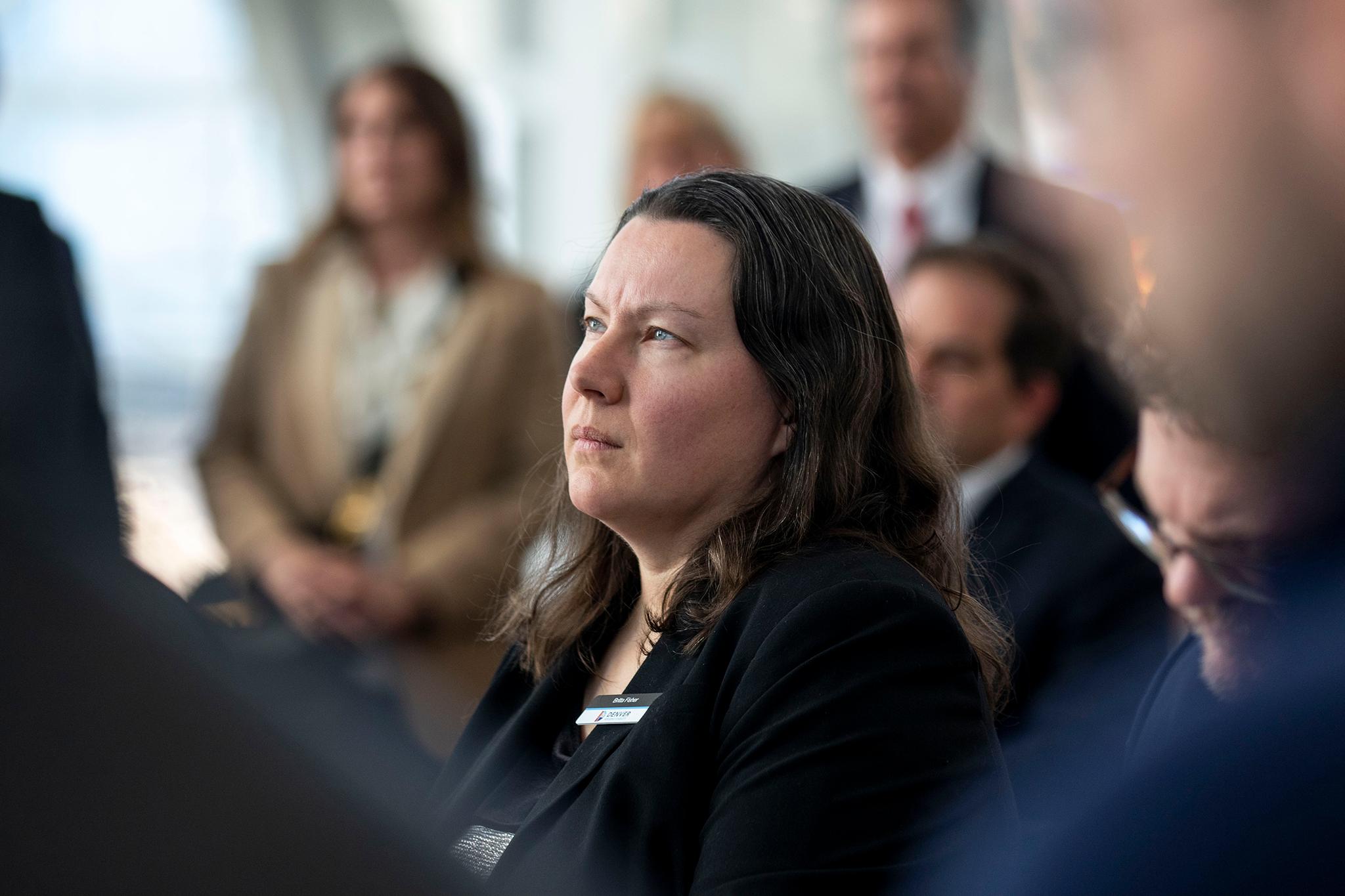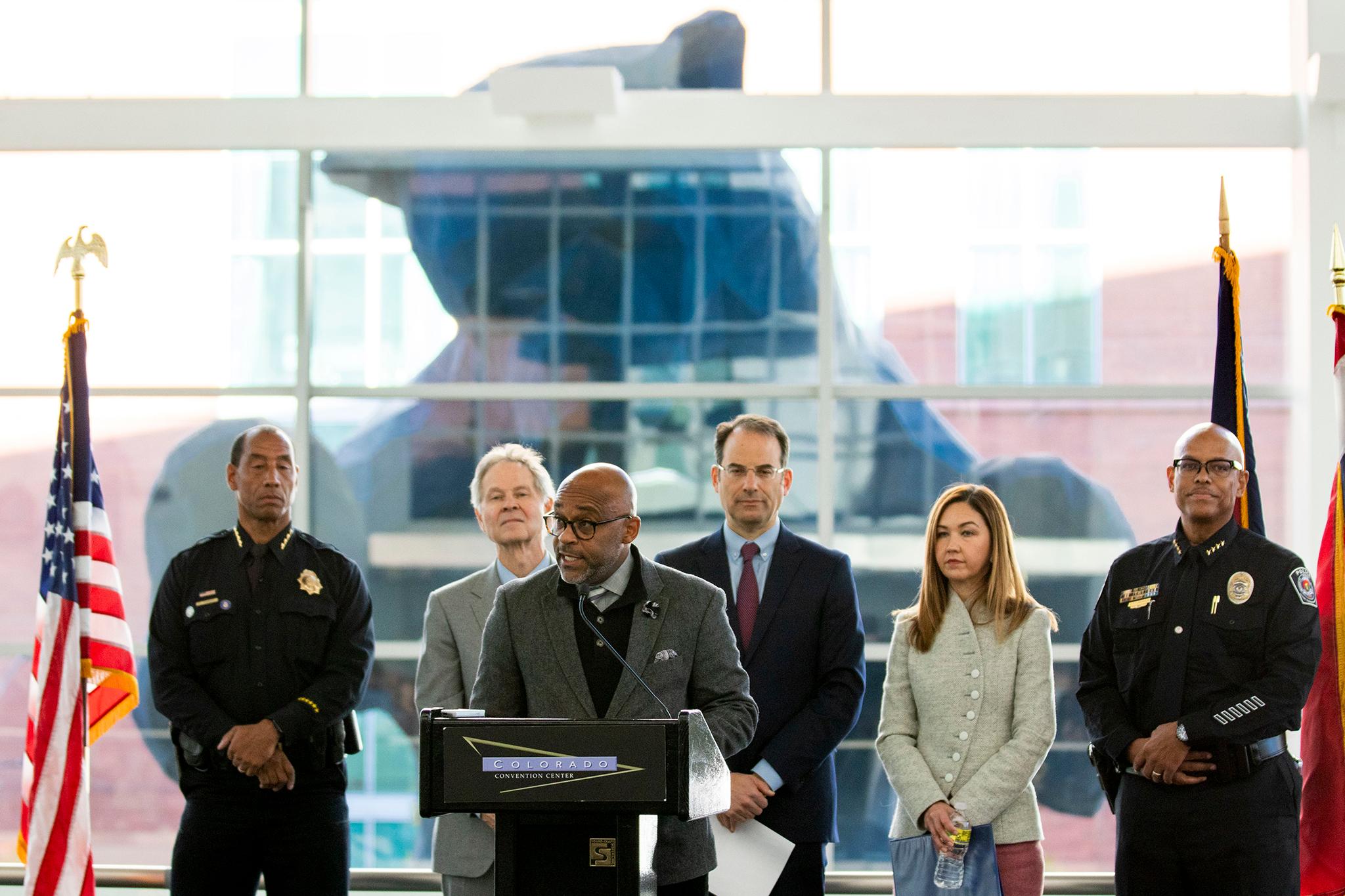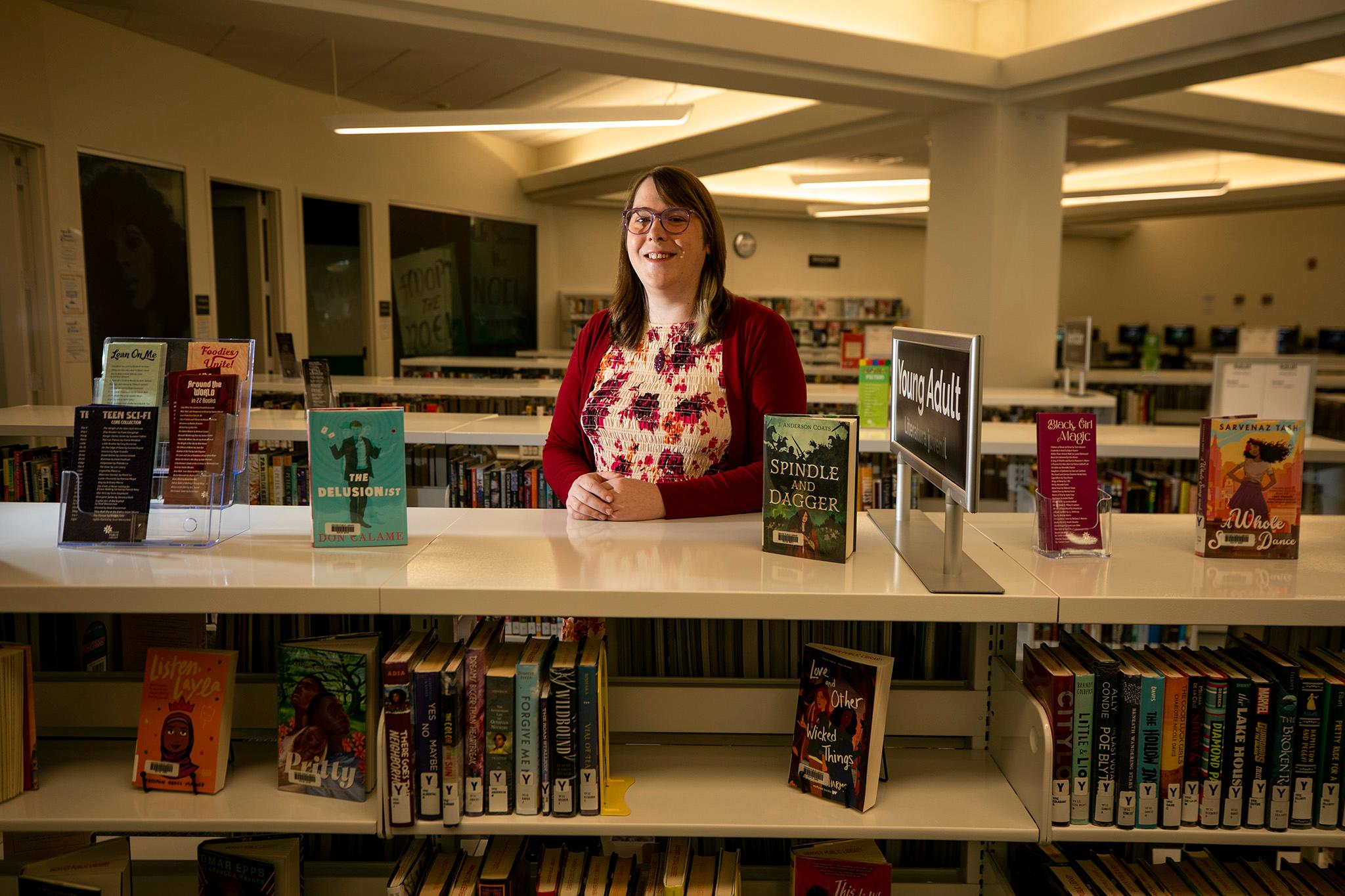Downtown Denver residents have had safety on their minds. Some have spent the past year clamoring for a more muscular police and social service response to drug use, homeless encampments and crime.
Their advocacy has worked. On Thursday afternoon, they got even more of what they wanted.
City, state and federal brass united at the Colorado Convention Center to launch the Downtown Denver Action Partners. Under the watchful eyes of the Big Blue Bear, they flexed for a crowd of journalists and advocates from the Upper Downtown Neighborhood Association, the Lower Downtown Neighborhood Association, Citizens for a Safe and Clean Denver and business leaders.

Goals for the new coalition include short- and long-term solutions to improve safety and health. Here's what that looks like.
The U.S. Attorney's Office plans to hire four new U.S. attorneys to focus on prosecuting violent criminals, caught in downtown Denver, under federal laws that ban felons from possessing guns.
"We are sending a powerful message today -- all of us on this stage and all of us in this room -- to criminals," said U.S. Attorney Cole Finegan. "We're bringing federal criminal charges against felons with guns and criminals using guns in crimes of violence or drug trafficking."

The Denver Police Department plans to hire an additional 180 officers citywide, reduce call response times, and work with private and public entities to improve lighting and security infrastructure downtown, said new Chief Ron Thomas. He pledged to work with the STAR program, substance-use navigators and outreach case coordinators "to facilitate a genuine, compassionate, community-minded response."
The State Attorney General's Office plans to create opioid-prevention innovation grants with at least $520 million collected in opioid settlement funds, said Attorney General Phil Weiser.

Those grants, said Weiser, will be "providing public and private and nonprofit entities an opportunity to address this substance abuse and misuse, which we know may be associated with crime or those experiencing homelessness."
RTD's new chief Joel Fitzgerald encouraged the community to report safety and health concerns as they arise and discussed shifts in staffing at Union Station that have made the area safer.

Denver Mayor Michael Hancock described the multiagency strategy as "a balanced law enforcement and public health approach, a safety and health approach that we're bringing to downtown, and it's going to require all of us."
When asked how many officers and co-responders would be part of the team, neither the police nor other leaders offered specifics.
Some notable people were not at the program launch.
Denver District Attorney Beth McCann had been invited to the press conference and was in talks with the leaders, said Hancock, but she did not attend the event.
Downtown Denver Partnership CEO Kourtny Garrett was the only person on stage not directly involved in law enforcement.
Neither the Denver Department of Public Health and Environment nor the Department of Housing Stability, or HOST, spoke at the event, though Britta Fisher, HOST's executive director, sat in the front row.

Calls for increased downtown safety ramped up late last year when Union Station neighbors complained about heightened levels of crime.
The Denver Police Department responded in force, making over a thousand arrests during the winter and early spring.
Most of the arrests were low-level drug-related charges, and violent crimes were rare in comparison.
Homelessness in the area was high, as Union Station's Great Hall and the bus terminal were two of the few quasi-public spaces where people could go indoors to warm up in the winter -- especially after the city temporarily shut down Central Denver Library for renovations and swept a massive encampment at Civic Center Park.
As winter turned to spring, arrest numbers dropped. Law enforcement speculated that was partially due to warmer weather and fewer people seeking shelter from the cold.

Garrett described downtown as 'a place for entrepreneurs, for innovators, and major corporations alike' and 'the heartbeat of our city.'
But that heartbeat's been less than regular lately -- and Denver's city center is not the only one in the United States that has been struggling with a housing crisis, a pandemic, a shift in how and where people want to work, and inflation.
But other cities may be fairing better.
"The reality is that we are losing businesses in downtown Denver," Hancock said. "The reality is that we are losing conventions."
In the past, when people considered Denver for large-scale events, city boosters had an easy time luring them in. Not lately, according to Hancock.
"We're not willing to just throw our hands up and let that be the last word," he said. "We're better than that. I've grown up in Denver. I know what good looks like for Denver. And good looks like we're competitive on every metric. And we're going to make sure that we get back to that place."

Neighborhood advocates told Denverite things are already feeling safer and healthier downtown.
Jerry Orten walked through the Union Station bus terminal on Wednesday and was impressed with the improvements.
"It's calm, mild. It's organized. There (was) staff down there. It's just a different bus concourse than it was a year ago," Orten said. "What's kind of unique is that it was described as a 'hellhole.' Now there (are) evangelists outside the hellhole."
When David Howard, who lives in Washington Park and works downtown, looks around the city center, he said it's "so much better" than it was last year. He's even noticed improvements since the summer.
Rob Squire, with the Upper Downtown Neighborhood Association, said things feel safer.
"It's not where we want it to be," he said. "But that's why we're having things like this. But it's getting better. And I think people are going to start to come back to Denver and feel the vibrancy again."









